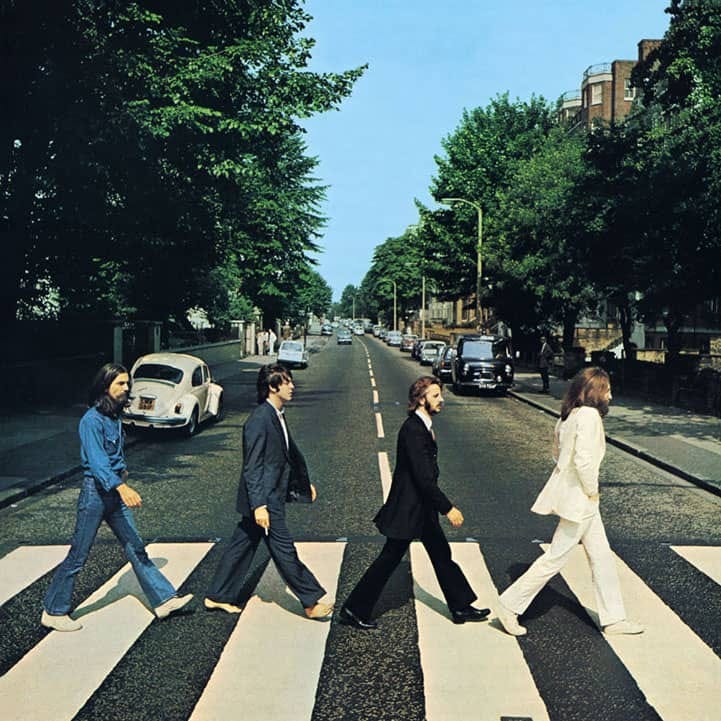A+ Albums: The Enduring Legacy of Abbey Road
Though increasingly called overrated or a cliche love, the significance of Abbey Road is everlasting.
When I was in college in the mid-to-late 00s, there was about a one in five chance any given dorm room had a poster of The Beatles walking across a striped road crossing, the iconic cover art for Abbey Road. The album was The Beatles’ second-to-last album. Its ubiquity as a symbol of a cultured twenty-something has led to an understandable reaction against it, calling the album overrated. However, it was an important prototype for progressive rock as a genre.
The Beatles went through a profound evolution throughout their career. Their early albums are undeniably pop rock, both to audiences at the time and a modern ear. In the middle part of the career, they started experimenting heavily with psychedelics, which led to albums like Sgt. Pepper’s Lonely Hearts Club Band. Psychedelic rock is often considered the sister of progressive rock, so it is no wonder the latter parts of their career drifted into what — even if not identified as such at the time — were the first popular prog albums.
One common feature of prog composition is songs much longer than a typical rock song, allowing for several phases and styles, akin to movements in a classical symphonic piece. The last third of Abbey Road is a 16-minute long medley, starting with the four-minute “You Never Give Me Your Money,” thereafter jumping through a number of short, mini-songs, culminating with the aptly titled “The End.”
The iconic anime series Cowboy Bebop, crafted as a tribute to American culture, ends most episodes with a black title card reading in the corner, simply, “See You Space Cowboy.” After the final episode, it instead reads, “You’re Gonna Carry That Weight,” a line from the penultimate part of the medley. The Beatles are from the United Kingdom, though their impact on American music is undeniable, and it still feels a fitting way to pay tribute to the rather emotionally sad end to the series.
But “The End” in the album’s medley itself takes a turn for the upbeat. The band chants, “Love you,” in the background as each member takes turns playing mini-solos, closing out with the oft-quoted lyric, “And in the end, the love that you take is equal to the love that you make.” By the time you reach this point in the musical journey, you have jumped between over a half-dozen distinct styles.
The Abbey Road medley walked so much later concept albums like De-Loused in the Comatorium could soar. It helped challenge the notion of how rock music could be composed, making it not about radio-friendly three-minute chunks but rather following a grander vision that brought a large part of the overall album into a cohesive whole. Prog rock supergroup Transatlantic paid stylistic homage to it in their “Suite Charlotte Pike,” which they sometimes intertwine with the medley itself in performance. Even Tenacious D recently covered the first and last parts for their YouTube channel.
And the parts of the album not in the medley are fantastic as well. “Here Comes the Sun” is an optimistic folky classic. “Octopus Garden” is a goofy delight and one of the few songs composed by drummer Ringo Star — which makes it easier to sing, because he intentionally gave it a smaller octave range to match his ability. The wistful longing of “Something” is practically haunting. The album has no slow moments and shows a depth of composition present in almost no rock albums before.
I am not some Beatles fanatic. Hell, I rarely listen to the first half of their discography. But if there is any album that has earned its place as the cliche dorm poster, it is Abbey Road. The album is now over a half-century old, and its imposing presence in the canon of rock music will undoubtedly last at least another half-century more — if not forever. Perhaps some gravitate towards it because they know the appreciation of it signals good music taste, but the album remains a true masterpiece nonetheless. Everyone should give it a close and mindful listen at least once.


